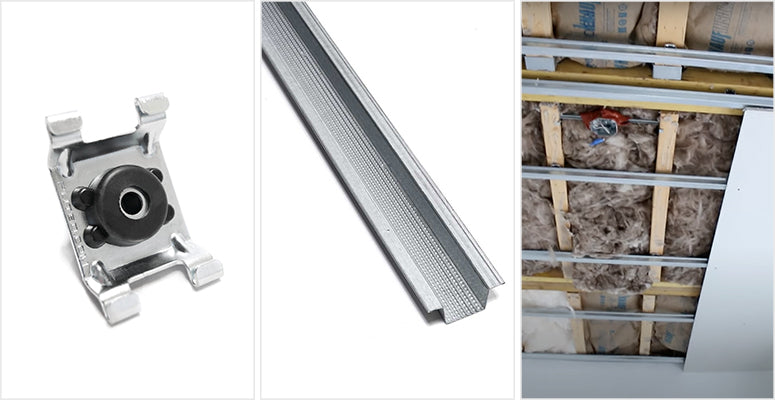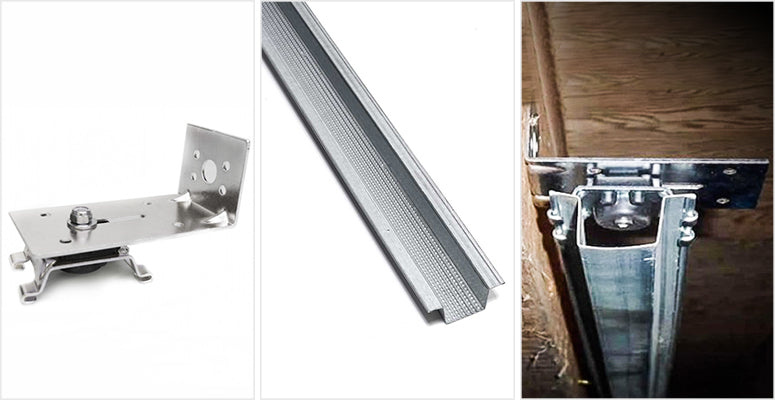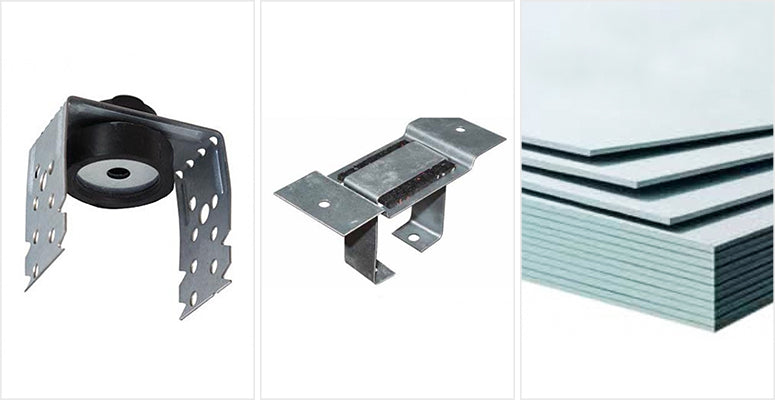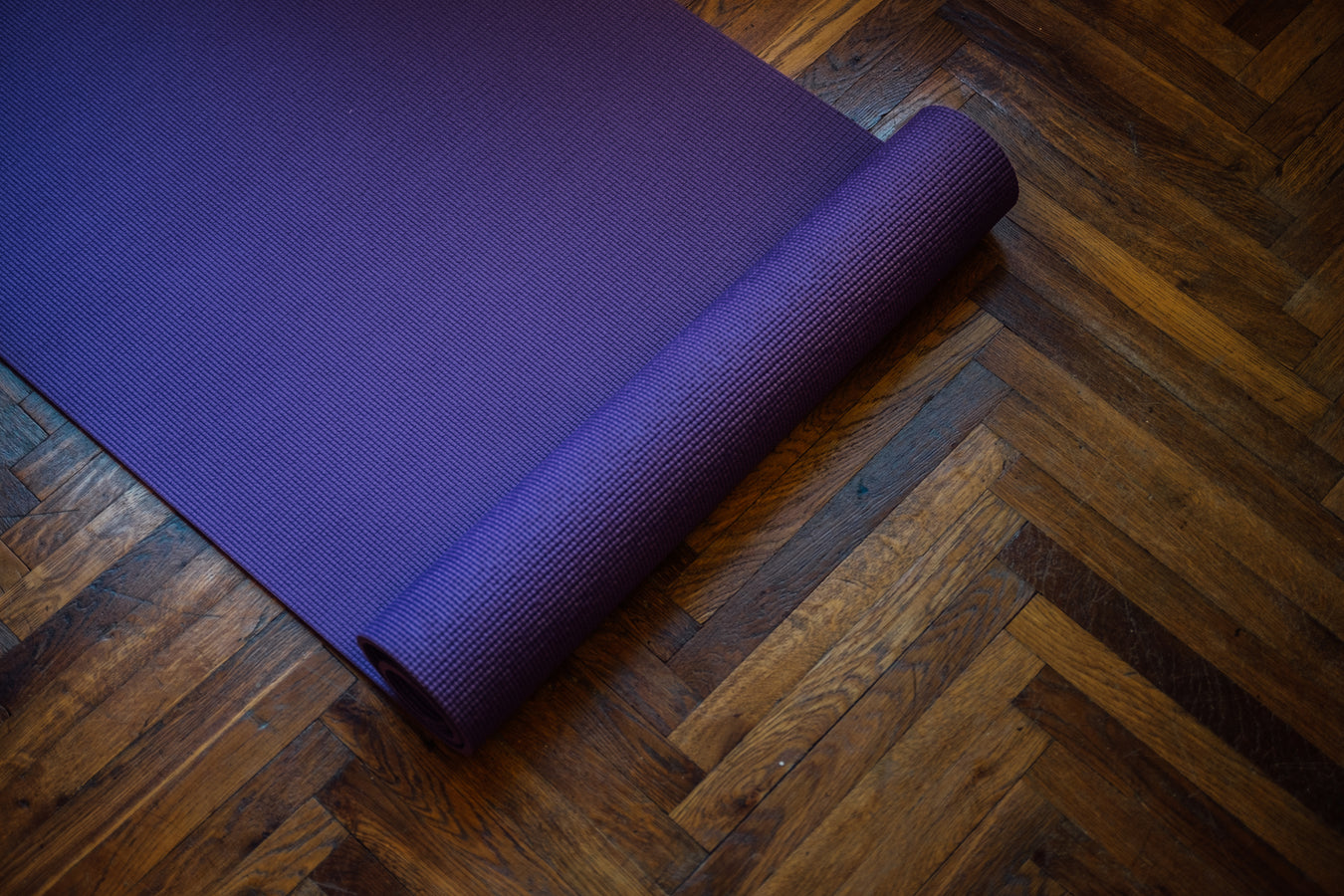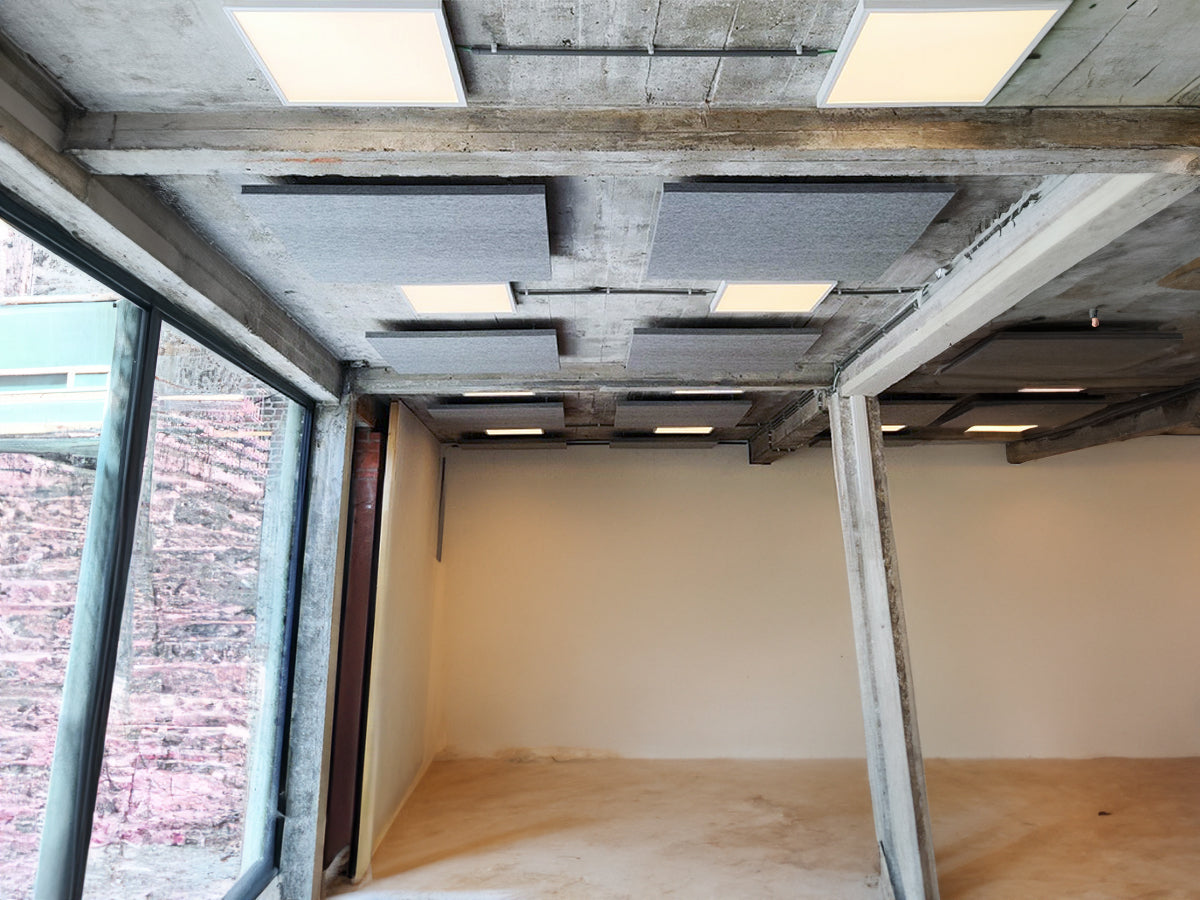Unwanted noise from above can be a significant disturbance, whether it's footsteps from an upstairs neighbour, the hum of appliances, or airborne sounds penetrating your space.
If you're seeking tranquility and privacy, soundproofing your ceiling is an effective solution. We understand the challenges of noise pollution and offer a range of ceiling soundproofing solutions to help you reclaim your peace.
Ceiling Soundproofing Solutions That Deliver Results
Our ceiling soundproofing products are meticulously designed to combat various types of noise, ensuring a quieter and more comfortable environment. From high-density acoustic panels to innovative sound isolation systems, our selection caters to both residential and commercial needs. With Soundstop.co.uk, you're investing in proven solutions that not only reduce noise but also enhance the acoustic quality of your space.
Why Choose Ceiling Soundproofing?
Ceiling soundproofing is essential for those who experience intrusive noises from upper levels or external sources. Whether you're living in an apartment, working in a multi-story building, or setting up a home studio, controlling overhead noise is crucial. By soundproofing your ceiling, you:
Enhance Privacy: Prevent conversations and activities from being overheard.
Improve Concentration: Create a focused environment free from distractions.
Increase Property Value: Soundproofed spaces are often more desirable to buyers and tenants.
Boost Comfort: Enjoy a peaceful atmosphere conducive to relaxation and productivity.
The Benefits of Ceiling Soundproofing:
Effective Noise Reduction: Minimize both airborne and impact noises originating from above.
Versatility: Suitable for various settings, including homes, offices, studios, and commercial spaces.
Energy Efficiency: Some soundproofing materials also offer thermal insulation benefits.
Aesthetic Appeal: Modern soundproofing solutions integrate seamlessly with existing decor.
Key Questions for Ceiling Soundproofing
1. What Types of Noise Are You Dealing With?
Airborne Noise: Sounds that travel through the air, like voices, music, or TV.
Impact Noise: Physical impacts on the floor above, such as footsteps or moving furniture.
2. What Is the Structure of Your Ceiling?
Understanding whether you have a suspended ceiling, drywall, or another type will influence the choice of soundproofing materials and methods.
3. Are There Any Structural Limitations?
Consider the load-bearing capacity and space constraints to select appropriate soundproofing solutions.
4. What Is Your Budget?
Soundproofing can range from simple fixes to comprehensive installations. Determining your budget helps in choosing the most effective solutions within your means.
5. Do You Require Professional Installation?
Some soundproofing methods are DIY-friendly, while others may need expert handling to ensure optimal results.
How to Soundproof a Ceiling
Assess the Ceiling Structure:
Determine if it's a solid ceiling or a suspended/drop ceiling to choose suitable soundproofing techniques.
Seal Gaps and Cracks:
Use acoustic sealant to fill any openings where sound might leak through.
Install Acoustic Panels or Tiles:
These absorb sound waves, reducing echo and reverberation.
Use Resilient Channels:
These metal channels decouple the ceiling drywall from the joists, minimising sound vibration transmission.
Add Mass with Soundproof Drywall:
Heavier materials block sound more effectively. Installing additional layers of soundproof drywall can enhance noise reduction.
Incorporate Acoustic Insulation:
Filling the space between ceiling joists with acoustic mineral wool or fiberglass insulation absorbs sound and improves thermal insulation.
Consider Sound Isolation Clips:
These clips further decouple the ceiling from structural vibrations, enhancing soundproofing effectiveness.
Are There Any Building Regulations About Soundproofing a Ceiling?
Yes, in the UK, Part E of the Building Regulations pertains to resistance to the passage of sound. It sets standards for sound insulation in dwellings, rooms for residential purposes, and schools. If you're constructing a new building or converting an existing one, compliance with these regulations is mandatory. It's advisable to consult with building control authorities or soundproofing professionals to ensure your project meets all necessary standards.
Can You Soundproof an Existing Ceiling?
Absolutely. Retrofitting soundproofing solutions to an existing ceiling is feasible. Techniques such as adding acoustic panels, installing a secondary ceiling layer with resilient channels, or injecting insulation materials can significantly improve sound insulation without major structural alterations. However, the effectiveness of retrofitting depends on the existing ceiling's condition and structure.
Is Soundproofing Between Ceilings Worth It?
Investing in ceiling soundproofing offers substantial benefits, especially in noise-prone environments. It enhances living and working conditions by reducing disturbances, promotes privacy, and can even contribute to energy savings due to the insulating properties of some soundproofing materials. While there's an upfront cost, the long-term advantages in comfort and property value make it a worthwhile investment.
How Do I Stop Hearing Neighbours Through My Ceiling?
To mitigate noise from neighbors above:
Identify Noise Types:
Determine whether you're dealing with airborne or impact noise.
Enhance the Ceiling's Mass:
Add layers of soundproof drywall or mass-loaded vinyl to block sound transmission.
Decouple the Ceiling:
Use resilient channels or sound isolation clips to prevent vibrations from passing directly through the structure.
Incorporate Acoustic Insulation:
Fill cavities with acoustic mineral wool to absorb sound.
Seal All Gaps:
Ensure there are no openings for sound to leak through.
Consider Drop Ceilings with Acoustic Tiles:
These can create an additional barrier against noise.
For optimal results, combining multiple soundproofing methods is recommended. Consulting with soundproofing experts can provide tailored solutions based on your specific situation.

